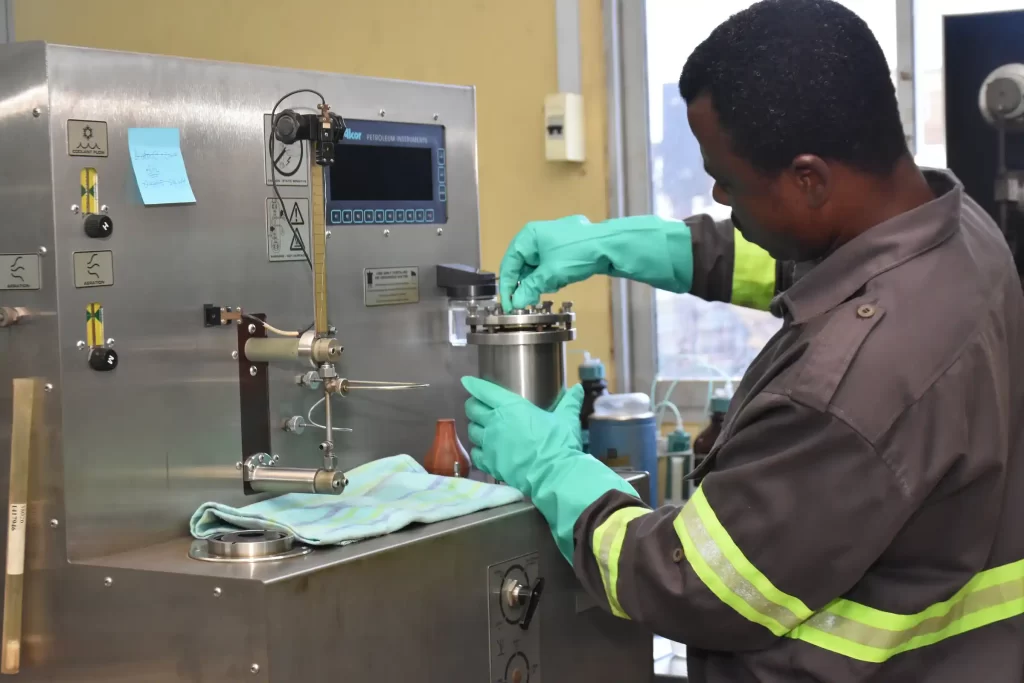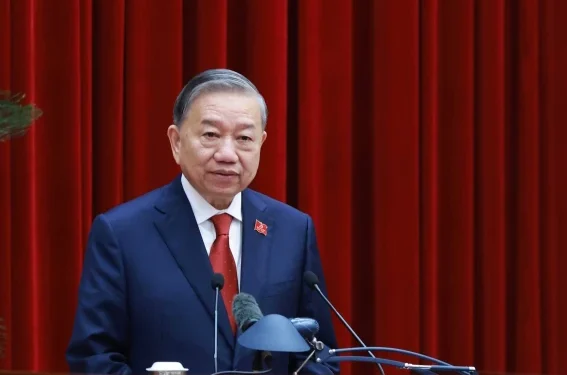Dr. Yusif Sulemana, a seasoned energy analyst and management strategist, has officially taken over as the acting Managing Director (MD) of the Tema Oil Refinery (TOR).
His appointment marks a significant shift at the helm of one of Ghana’s most pivotal institutions in the oil and gas sector. The handover ceremony took place between Dr. Sulemana and the outgoing MD, Kofi Tagoe Mocumbi, who concluded his tenure at the refinery.
Dr. Sulemana’s appointment as TOR’s MD brings a wealth of experience to the refinery, poised to steer the company through its next phase of transformation.
Reflecting on the refinery’s historical importance, Dr. Sulemana emphasized the legacy and continued relevance of TOR, which has served as a backbone to Ghana’s downstream sector since its inception in 1963.
“The refinery has undergone a significant transformation over the years, delivering excellence in the downstream sector.
“Our strategic intent is to ensure the refinery’s operations are effective and efficient while aligning with the company’s overarching strategic imperatives.”
Dr. Yusif Sulemana, Acting Managing Director of TOR
Dr. Sulemana added that his leadership would further solidify TOR’s vision of becoming a premier refinery and a pride for Ghanaians.
At the heart of Dr. Sulemana’s vision for TOR is a people-centric approach. He highlighted that the refinery’s stakeholders-employees, business associates, clients, and the communities it serves would remain at the center of TOR’s operational ethos.
“People should come first in our opinion; therefore, at the center of everything we do, are our stakeholders.
“Our cherished staff, our business associates, and the communities we serve are integral to our success.”
Dr. Yusif Sulemana, Acting Managing Director of TOR
Dr. Sulemana’s appointment also comes at a time when TOR is undergoing restructuring efforts to address challenges related to capacity, sustainability, and operational efficiency.
Under his leadership, the refinery is set to optimize its processes and enhance its competitive edge within the region’s energy landscape.
A Vision for TOR

Looking ahead, Dr. Sulemana is focused on driving operational excellence within TOR, emphasizing efficiency, modernization, and sustainable energy practices.
His strategy will involve improving existing refinery processes and investing in cutting-edge technologies to increase TOR’s operational capacity and reduce its environmental footprint.
“The energy industry is evolving rapidly, and as a country, we must be prepared to adopt new technologies, improve efficiency, and ensure that we are producing quality products in a sustainable manner.
“At TOR, we aim to position ourselves as a leader in this transformation.”
Dr. Yusif Sulemana, Acting Managing Director of TOR
Additionally, Dr. Sulemana’s leadership will focus on fostering collaboration among key stakeholders in Ghana’s energy value chain, ensuring that TOR remains an integral player in national energy security.
His vision for TOR aligns with broader national goals for the energy sector, as well as the refinery’s role in strengthening Ghana’s energy independence.
Dr. Sulemana’s credentials make him well-suited to lead TOR into its next chapter. With over 20 years of experience across the Upstream, Midstream, and Downstream sectors of the energy industry, he brings a depth of expertise that spans petroleum, power, and alternative energy.
His specialization in oil and gas production, refinery process optimization, and systematic troubleshooting aligns with the technical challenges facing TOR, particularly as it seeks to meet domestic and regional energy demands efficiently.
Before assuming his current position at TOR, Dr. Sulemana served as the Senior Oil & Gas Production Operations Specialist at Petroleum Development Oman (PDO) in the Sultanate of Oman.
In addition, he has held key roles as a Project Manager (Gasification) at Genser Energy and a Chemical/Process Engineer at Tema Oil Refinery, furthering his familiarity with the intricacies of the organization.
His academic background is equally distinguished. Dr. Sulemana holds a Doctorate in Business Administration (Energy Management) from a U.S.-based institution, an MSc in International Oil & Gas Management from the UK, and a BSc in Chemical Engineering from Kwame Nkrumah University of Science and Technology (KNUST), Ghana.
His technical expertise is complemented by a strong commitment to mentoring the next generation of energy professionals. Dr. Sulemana is a passionate advocate for Science, Technology, Engineering, and Mathematics (STEM) education.
He has earned recognition as a thought leader in the energy sector, and his advocacy work was honored with the Energy Advocate of the Year award at the Ghana Energy Awards.
Dr. Sulemana’s ability to integrate technical expertise with strategic vision has made him an influential figure not only in Ghana but also on the international energy stage.
His leadership experience in Oman, combined with his deep understanding of local energy challenges, positions him as the ideal leader to bring new energy to TOR.























